Borges on Kafka, Shakespeare, Joyce and the expressionists
sumber: http://storberose.blogspot.ch/2012/09/borges-on-kafka-shakespeare-joyce-and.html
Here’s another dialogue Jorge Luis Borges had with Osvaldo Ferrari for Buenos Aires’ Radio Municipal. The dialogue is titled “Kafka puede ser parte de la memoria humana” (Kafka may be part of human memory). Borges is telling Ferrari that he’s going to France to deliver a lecture to the French Academy on Franz Kafka. Ferrari asks him to elaborate on what he’s going to say:
What I’m going to mention, in Kafka’s case, is that if we read other great writers, we must continually do what they call make allowances in English – I don’t know quite what to call it in Spanish –, we have to think: well, this was written in such time, we must take many things into consideration. For instance, let us use the supreme example, which would be Shakespeare. In Shakespeare’s case, you have to think that he was not always writing for a select audience; that it had to last, well, what we now call‘five acts,’ although it was rather a continuous extension. Right, a certain extension of time, and, besides that, he acted, he had to use as a starting point plots that were traditional, foreign to him. And then he had to fit his characters in those plots, and sometimes you notice the dissonance. For instance, I believe in Hamlet, but I’m not sure I believe… making an effort I can believe in Hamlet’s ghost. But I’m not sure I believe in the court of Denmark and the intrigues; I don’t think so. In Macbeth’s case, I believe in Macbeth, I believe in Lady Macbeth; I’m ready to believe in the Fates – who are also witches –, but I’m not sure I believe in the fable. Well, that would be an example. And we have to relatively think about every writer: they wrote in such time, in such conditions; we have to situate them in the history of literature. And so we can, well, forgive or not mind certain things. However, in Kafka’s case, I think Kafka can be read beyond his historical circumstances. And we see two, which are very important: Kafka produces a good amount of his work during the war of fourteen. One of the most terrible wars ever – he must have suffered it a lot. Furthermore, he was a Jew, anti-Semitism was already on the rise. He lived in Austria, well, in Bohemia, which was part of Austria then. Died in Berlin, I think. All those circumstances, of living in a besieged country, in a country that was winner at first and loser in the end. All of that should have resonated throughout his work, and yet, if the reader didn’t know it he wouldn’t notice it; for it was all transmuted by Kafka. And then another fact, rarer still: Kafka was a personal friend of the expressionists. The expressionists led the most important aesthetic movement of this century; much more interesting than surrealism, or cubism, or mere futurism, than imagism. Well, it was a kind of total renovation of the arts. Of painting too; let’s think of Ernst Barlach or in Kokoschka, or the others. Kafka was their friend, they wrote; they were continuously renovating language, weaving metaphors. One could say the supreme work of expressionism was the work of Joyce, although he didn’t belong to this group and didn’t write in German, but in English; or in his English, which is a different English – an English made solely of composite words. Well, we have those two facts: expressionism, a great literary movement, and Kafka published in one of the two magazines – not sure if in Die Aktion or in Sturm – which were two expressionist magazines. I subscribed to them at the time, I mean the year 1916, 1917. At that time I read a text by Kafka for the first time; I was so insensitive that it simply seemed very soft, a bit anodyne, for I was surrounded by all sorts of verbal splendours from the expressionists. Well, you don’t notice any of that, that is, Kafka would end up being the great classical writer of our tormented century. And possibly will be read in the future and one will not know very well that he wrote at the beginning of the 20th century, that he was a contemporary of expressionism, a contemporary of the First World War. All of that can be forgotten: his work could be anonymous, and maybe, with time, it deserves to be. It’s what a work most aspires to be, isn’t it? Well, and that only a few books have achieved.
And now Borges’claim that Kafka’s work already belongs in mankind’s memory:
Now, in Kafka’s case, possibly those fables of his already are part of men’s memory. And it could happen with them what could happen with Don Quixote, let us say: all copies of Don Quixote could be lost, in Spanish or in the translations; you could lose them all, but the figure of Don Quixote is already part of mankind’s memory. I think that the idea of a terrible, growing, infinite trial that becomes the basis of his novels which, of course, Kafka didn’t want published because he knew that they were incomplete, that they had the duty to be infinite… well, The Castle, The Trial can be part of human memory and rewritten with different names, in diverse circumstances; but Kafka’s work is already part of mankind’s memory.
Ferrari then asks him what writers Kafka is closer to and Borges makes a fine point about the simplicity of Kafka’s language:
Well, perhaps Henry James is closer to him. Proust I don’t think would have interested him and Joyce absolutely nothing because Joyce corresponds to expressionism, that is, to the idea of art, well, as passionate, but also verbal. I mean: in Joyce’s case the important thing is each line. Well, Kafka lived surrounded by people who were, or tried to be, Joyce, without knowing him, of course. And yet what Kafka writes… he writes in a very simple German. So simple that I, who was studying German, managed to understand him. And other authors gave me a lot of work; the expressionists, for instance: Johannes Becher, whom I admire very much, who became for me the greatest expressionist. Well, I didn’t understand Becher, and what’s worst, I couldn’t feel at all what I was reading through the verbal games.
Borges is not the only writer to notice the simplicity of Kafka's writing. Milan Kundera has an excellent essay called "A Sentence" included in Testaments Betrayed and which addresses how translators of Kafka try to 'improve' his writing by replacing common verbs with more florid ones.
This dialogue certainly doesn’t exhaust everything Borges has to say about Kafka, about whom he wrote a lot. But I like it a lot because it offers many insights into the work of Kafka and what Borges thought of it.
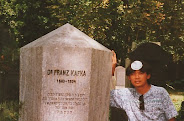


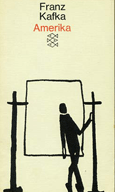
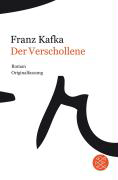
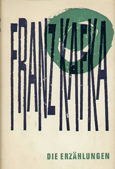
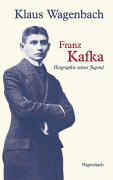

Tidak ada komentar:
Posting Komentar